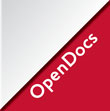Promises and Perils of Regional Response to Covid-19 in Asia
Abstract
‘Crises’--financial crash, pandemics, political conflicts, and natural disasters—have been
recognised for providing stimulus for institutional strengthening of regional organisations
(Ogbonnaya, 2013; Vinokurov and Libman, 2014). The development of institutional
mechanisms and strategies to address crises that impact a particular region is argued
to facilitate strengthening of existing institutions or initiating new ones within regional
organisations. This report first maps and analyses the Covid-19 responses of two of
Asia’s prominent regional organisations, namely the South Asian Association for Regional
Cooperation (SAARC) and Association of Southeast Asian Nations (ASEAN) in South and
Southeast Asia. In doing so, it assesses how has the regional response to the pandemic
impacted prospects of greater regional cooperation in Asia.
Understanding regional organisation’s responses to Covid-19 and the impact of these
responses on the strengthening of regional organisations in Global South is pertinent
for at least two reasons. First, there is a consensus that a concerted global multilateral
response to the pandemic has been absent. The key global health agency, the World
Health Organization, was underpowered. There was absence of global political leadership
(Wise, 2021). The UN Security Council was unable to facilitate multilateral cooperation,
questioning the very relevance of the UN system (Charbonneau, 2021). Secondly, national
responses, in turn, have been parochial and inward-looking. The colossal impact of the
pandemic in rich industrial Western states meant that countries who otherwise were
expected to take lead in tackling global crises were themselves occupied domestically.
A push to get first access to vaccines supply or ‘vaccine nationalism’(Gruszczynski and
Wu, 2021) by the Western states not only delayed prospects of a global recovery (Huizen,
2021), but also exposed the inequalities between the Global North and the South. The
gaps left by the limitations of the ‘nationalist’ and the ‘absence of global leadership,
carved space for regional leadership, in turn, raising prospects of regional institutions
to play important role in managing the crises. Additionally, the transboundary nature of
pandemics that required policy coordination between different countries in a region put
further impetus on the role of regional organisations (Kliem, 2020). This report examines
if and how two regional organisations in the Global South--ASEAN and SAARC--have been
able to harness the opportunities presented by Covid-19 and its impact on building and
strengthening of cooperation mechanisms.

